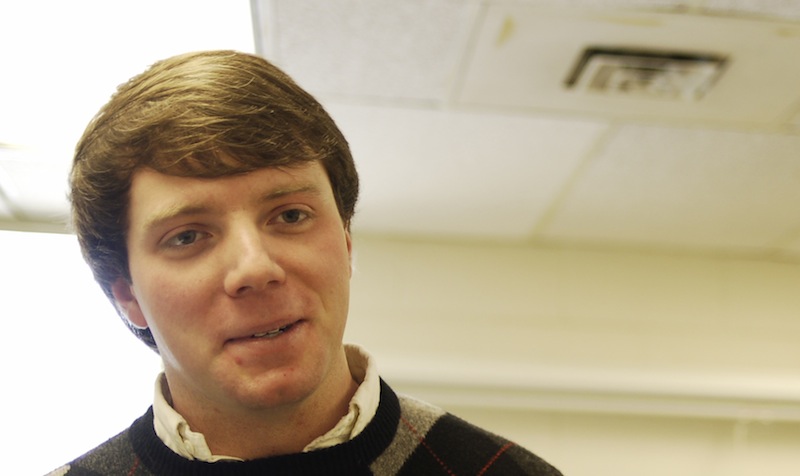Scott Foster ’10 J.D. ’14 and Douglas Pons will each run uncontested in Williamsburg City Council’s elections.
Foster and Pons have served on city council for the past four years. Both council members said that housing development is top priority.
“For the last six and a half years, we’ve seen a steady decline in the number of rooms rented in Williamsburg,” Pons said. “We have nine shuttered hotels in the Williamsburg area. Franchised restaurants on the traditional restaurant row on Richmond Road are closing. Those are signs that we have a problem in our tourism industry, and we need to turn that around.”
Pons said that itemizing the $650,000 budget the City of Williamsburg gives to the Greater Tourism Alliance and the $1.2 million budget the city gives to the Colonial Williamsburg Foundation will allow the city to respond and reallocate money if the city does not see increases in the meals or rooms that make up a large portion of tourism revenue.
The City of Williamsburg’s Comprehensive Plan of 2013 states that focusing on creative businesses can bring in funds as tourism fund declines. Foster said that mixed-use development projects — such as the new Griffin Arms apartment complex built behind Sorority Court — will improve the vibrancy of downtown.
“Students really want new, attractive businesses coming to Williamsburg, and the city is poised to offer licenses to those businesses and create a wonderful pro-business environment,” Secretary of Public Affairs Zach Woodward ’14 said.
Foster and Pons said they want to bring more restaurants downtown. Pons said that he wants to bring restaurant franchises to Richmond Road. He said he also hopes to develop the land from Richmond Road to the School of Education. Foster said he is excited to bring businesses to the Triangle Building.
“We need to make sure that what comes there really fits that cross-section of students and tourists and residents,” Foster said.
Undersecretary to the City of Williamsburg Scott Caravello ’15 said that the Comprehensive Plan and city council’s ideas will help make Williamsburg a better environment for students to live in after graduation.
Housing is a major factor in students’ decisions to stay in Williamsburg after graduation. When the College of William and Mary bought One Tribe Place last year, Foster said that developers lost interest in building student-oriented off-campus housing. Pons said off-campus housing is not as big of an issue because of One Tribe Place’s purchase.
“Over time, we’ll understand that the continued desire for students to live in off-campus housing is not going away,” Foster said. “It will be interesting in the next couple of years to see what the demand is like.”
The cap on the number of nonrelated individuals who can live in a particular location limits the number of students who can live in a larger house to three.
“Another big thing facing [the City Council] are off-campus housing issues: making sure that the city ordinances are more in line with square footage-type rules for housing capacity rather than hard and fast rules that really don’t reflect the realities of housing in Williamsburg,” Woodward said.
Foster and Pons said that they have not heard many complaints about the three-person rule.
“Really, our efforts on building more student-oriented housing has been a way we’ve tried to get at the three-person rule, taking the pressure off the residential neighborhoods,” Foster said. “It’s going pretty well right now — the city hasn’t issued any evictions in the last four years, which is great. Before, when I was an undergrad, there was a round of evictions every semester.”
Both council members spoke of improved relations between students and the city. Foster, who graduates from law school this year, will end his tenure as a student at the College soon. He said that he stays in contact with students and will continue to represent their voice in the City Council.
Students are involved in the Planning Commission and Neighborhood Relations Committee. In February, the College hosted the Neighborhood Council of Williamsburg meeting.
“Students from nine different organizations came and talked about their volunteer efforts,” Caravello said. “I know all the residents who were at that meeting came away with an excellent impression of students and the way that we are engaged within our community.”
Woodward said he would like to see more students become involved in non-political city activities, such as attending the Farmer’s Market and other community events.

